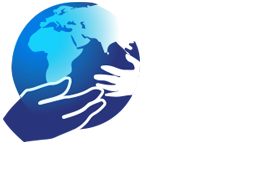General questions
If you have further questions, please let us know!
FAQs
Yes, for the next three years, while we are refining the modules, we will remain involved with helping connect you with a voluntary teaching physio…
The modules are designed to be taught to anyone even if they have no previous medical knowledge. (However the more knowledge someone has, the easier they will find the modules).
You may wish to choose someone from your community who has no former medical training, the advantage is that you are creating a job for someone new.
You may also wish to choose someone with previous training such as a rehab technician. The advantage here is that their knowledge will be broadened.
We do not recommend training nurses or doctors as they already have full time jobs to carry out.
We recommend two students to be taught in one geographical area. This enables the students to have enough patients to earn a living and the two students can support each other…
We can help you with this, as a starting point it is worth researching what is the greatest need (strokes, SCI, paediatrics etc) and then is the available rehab limited? If your area has many amputee patients, you may also be interested in the burns and MSK modules. If your area has many paediatric neurological patients, of maybe worth learning just that module…
This varies on the students previous knowledge and speed of learning. In the Dharamsala the student had a physiology degree and he learnt 8 modules in three weeks. In the Cameroon, they learnt two modules in three months. We suggest starting with one module and depending on the length of time the teaching physiology is available for, you can expand and do a second of time allows. Either way, we would aim to return with another teaching physio a year later to provide further training in other modules
After the global trials have proven the modules to be safe and effective, we will aim to get each module accredited and will offer certificates to the students
Each module includes a library specific to each module. This shows basic anatomy, physiology, pathology and diagnostics relating to each diagnosis within the module. The second part is an interactive assessment where a specialist Physiotherapist has predicted the clinical reasoning for the student in an artificial intelligence method leading to a diagnosis. The third section provides a treatment plan specific to the diagnosis. (See an example here). This enables anyone to learn the modules or indeed a worker to expand their knowledge to cover more clinical areas. (Eg for amputee clinics who also have paediatric patients, the worker can learn the paeds module even though it is out of their current remit).
The modules will never be so advanced that they equal a degree program as we believe in keeping the standard below graduate level. This is because we would like to empower communities to treat patients themselves. However if a country already has a physio degree program, we are not needed unless their qualified physios can not access remote patients
Further info
See more Facts and stats
